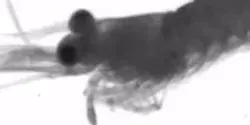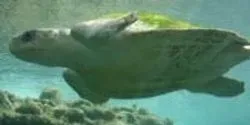marine research

Nanomaterials commonly used in sunscreens and boat-bottom paints are making sea urchin embryos more vulnerable to toxins, according to a study from the University of California, Davis. The authors said this could pose a risk to coastal, marine and freshwater environments.

Ocean researchers like to say we know less about the Earth’s seas than the moon. With less than 5 percent of the world’s oceans explored, big discoveries await. To find them, University of Rhode Island students are learning to build the next generation of autonomous underwater vehicles, or AUVs, used to map seafloors, study ocean movement, locate sunken objects, research sea life and more.

University of Delaware researcher Jonathan Cohen is using a new technology to analyze and quantify zooplankton in the Delaware Bay.

On their most recent trip to study seeps, Indiana State University scientists made a big discovery regarding a tiny creature that lives in both seep and non-seep habitats.

Growing concerns about water scarcity and climate change have given rise to a new branch of research that has found its way to Clemson University and could help deal with some the globe’s biggest environmental challenges.














